
The Sustainable Development Goals Report 2025 marks the tenth annual stocktaking of global progress toward the 2030 Agenda for Sustainable Development. With the 2030 deadline only five years away, the report delivers a stark assessment: the Sustainable Development Goals have improved millions of lives, but the current pace of change is insufficient to fully achieve all the Goals by 2030.
The report reveals real and substantial development gains during the past decade. Since 2015, the world has made notable strides in expanding access to education, improving maternal and child health, and bridging the digital divide. Effective prevention efforts have significantly reduced the…

In an era marked by complex and interwoven crises, the role of the United Nations in preparing for the future has never been more critical. This review of UN DESA’s foresight and preparedness efforts shows how the Department’s economic and demographic forecasts, capacity development programmes, and work towards accelerating an inclusive and just transition help governments and people make strategic choices to shape and prepare for the future they want.
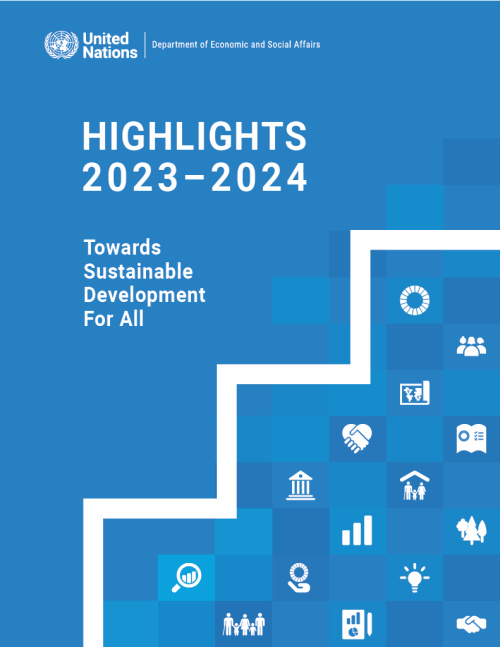
The UN DESA Annual Highlights report is a tool to communicate the contributions of the Department to the realization of internationally agreed development goals and shared social, economic, and environmental aspirations. It showcases the Department’s role in gauging trends, building capacities, and shaping solutions. UN DESA Highlights 2023–2024 covers activities over the period of the 78th Session of the General Assembly (September 2023 – August 2024) and reflects the Department’s response to the set priorities and expressed needs of Member States. Seven (7) thematic chapters showcase how UN DESA put its expertise to the task of supporting Member State efforts to implement the 2030…
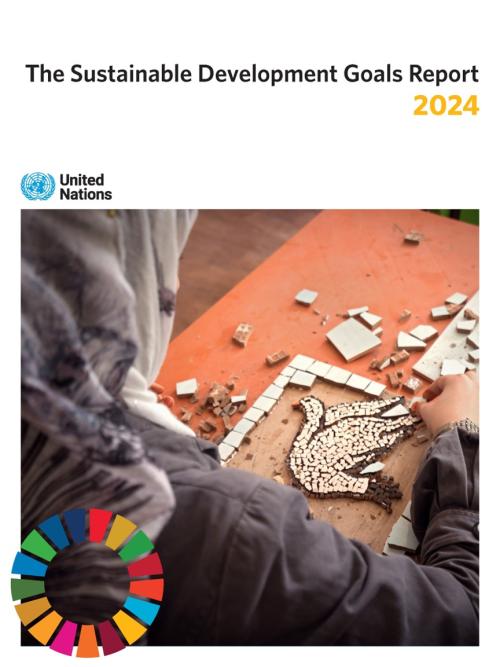
The Sustainable Development Goals Report 2024 details the significant challenges the world is facing in making substantial strides towards achieving the SDGs based on the latest data and estimates. It features areas with setbacks while also showcasing where tangible progress has been made, for instance, in reducing global child mortality, preventing HIV infection, and access to energy and mobile broadband. The report also highlights where action must accelerate, particularly in critical areas undermining SDG progress - climate change, peace and security, inequalities among and between countries, among others.
According to the report, with just six years remaining, current progress…
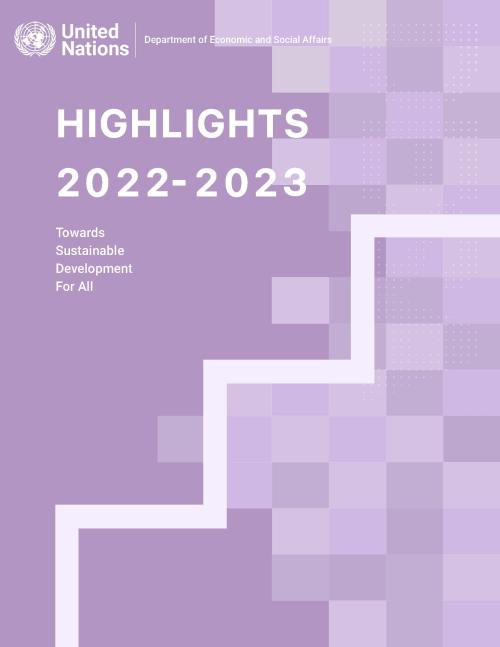
The UN DESA Annual Highlights report is a tool to communicate the contributions of the Department to the realization of internationally agreed development goals and shared social, economic, and environmental aspirations. It showcases the Department’s role in gauging trends, building capacities, and shaping solutions. UN DESA Highlights 2022-2023 covers activities over the period of the 77th Session of the General Assembly (September 2022 – August 2023) and reflects the Department’s response to the set priorities and expressed needs of Member States. Seven (7) thematic chapters showcase how UN DESA put its expertise to the task of supporting Member State efforts to implement the 2030…
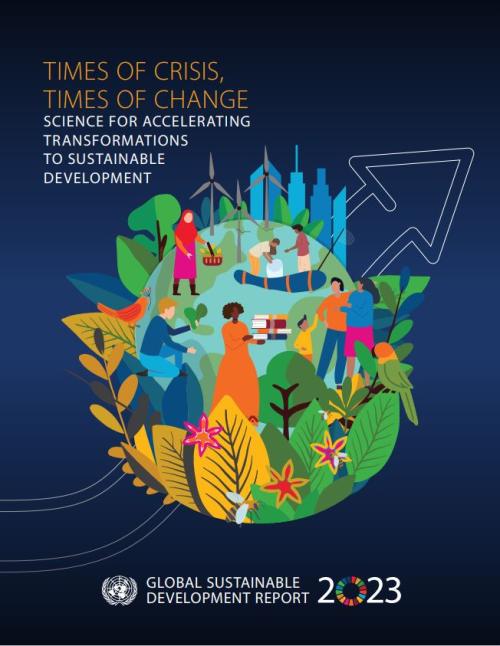
Times of Crisis, Times of Change: Science for Accelerating Transformations to Sustainable Development", the 2023 Global Sustainable Development Report (GSDR), finds that at this critical juncture, midway to 2030, incremental and fragmented change is insufficient to achieve the Sustainable Development Goals (SDGs) in the remaining seven years. Implementation of the 2030 Agenda requires the active mobilization of political leadership and ambition for science-based transformations. This must be achieved globally - leaving no country, society or person behind. The report is an invitation to embrace transformations with the urgency needed to accelerate progress towards the SDGs.
The…
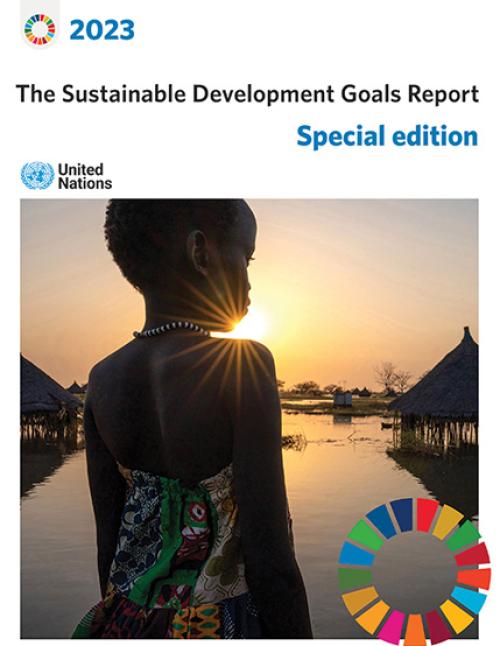
According to The Sustainable Development Goals Report 2023: Special Edition, failure to redouble global efforts to achieve the Sustainable Development Goals – the promise of a better world for all – may fuel greater political instability, upend economies and lead to irreversible damage to the natural environment.
World leaders made a historic promise to secure the rights and well-being of everyone on a healthy, thriving planet when they agreed to the 2030 Agenda for Sustainable Development and its 17 SDGs in 2015. However, the combined impacts of the climate crisis, the war in Ukraine, a gloomy global economic outlook and lingering effects of the COVID-19 pandemic have revealed…
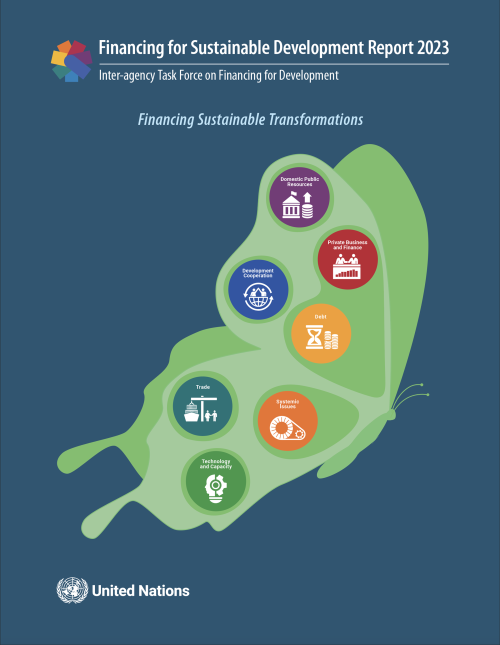
Sustainable development prospects continue to diverge between developed and developing countries. The 2023 Financing for Sustainable Development Report finds that SDG financing needs are growing, but development financing is not keeping pace. The war in Ukraine, sharp increases in food and energy prices, and rapidly tightening financial conditions have increased hunger and poverty and reversed progress on the SDGs. If left unaddressed, a “great finance divide” will translate into a lasting sustainable development divide.
Stakeholders must maintain a long-term focus on resilient and inclusive development, while addressing near-term crises. Delaying investment in sustainable…
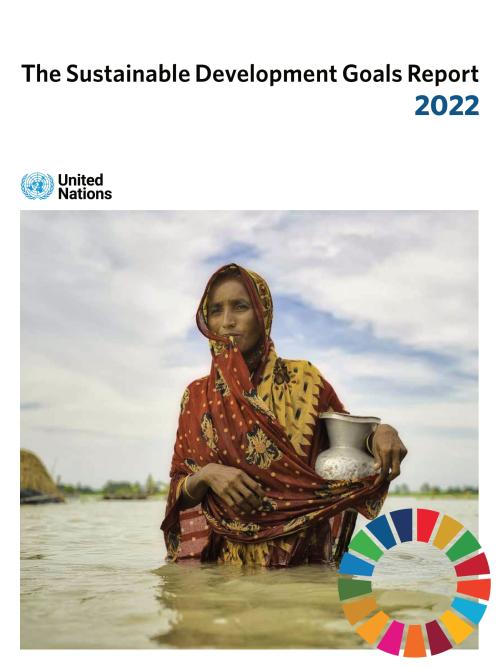
The Sustainable Development Goals Report 2022 provides a global overview of progress on the implementation of the 2030 Agenda for Sustainable Development, using the latest available data and estimates. It tracks the global and regional progress towards the 17 Goals with in-depth analyses of selected indicators for each Goal.
According to the Report, cascading and interlinked crises are putting the 2030 Agenda for Sustainable Development in grave danger, along with humanity’s very own survival. The Report highlights the severity and magnitude of the challenges before us. The confluence of crises, dominated by COVID-19, climate change, and conflicts, are creating spin-off impacts on…
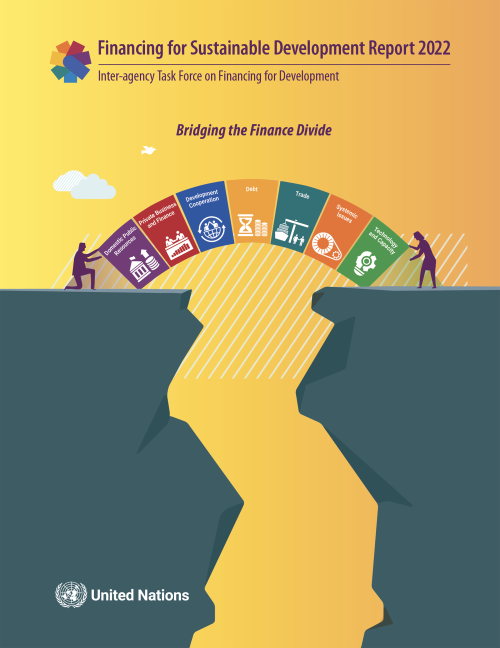
Developing countries still have to regain lost ground from the COVID-19 pandemic. The pandemic has put more countries at risk of debt distress, constrained their fiscal space and hampered economic growth. The war in Ukraine is exacerbating all these challenges. In this context, the 2022 Financing for Sustainable Development Report identifies a “great finance divide” – the inability of poorer countries to raise sufficient resources and borrow affordably for investment.
The great finance divide leaves developing countries unable to respond to crises and invest in sustainable development. On average, developed countries use 3.5 per cent of revenue to pay interest on their debt,…
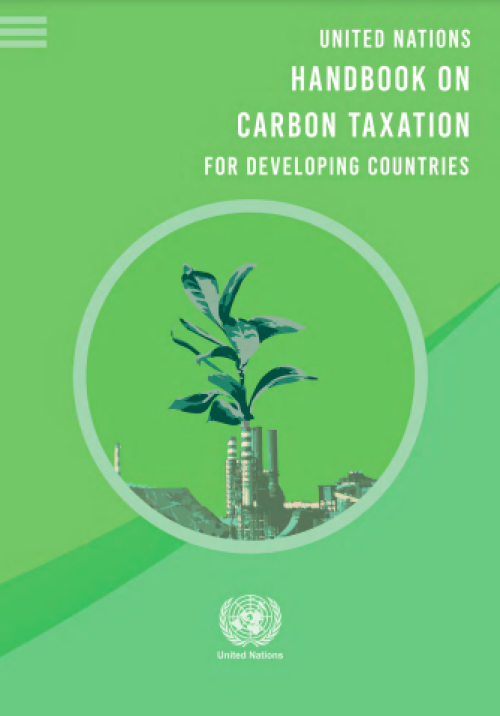
Environmental taxes are on the agenda of many developing countries, for both revenue purposes and for meeting countries’ commitments on climate change and sustainable development.
Carbon taxes are a policy option aimed at curbing carbon-based emissions responsible for climate change, in line with the commitments assumed by countries under the Paris Agreement. Carbon taxes put a price on the emission of greenhouse gases, thereby motivating companies to invest in cleaner technology or switch to more efficient practices. Likewise, consumers may be incentivized to invest in energy efficiency, change their lifestyle habits or, where options are available, switch to cleaner forms…
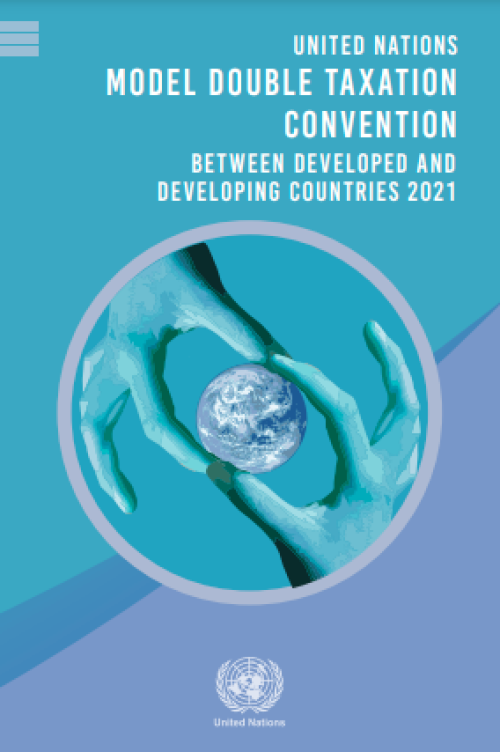
Double tax treaties aim to prevent unrelieved double taxation, in order to foster cross-border economic activity and the transfer of technology. Countries generally use models as a starting point when negotiating tax treaties. As the UN Model Double Taxation Convention between Developed and Developing Countries generally favours retention of greater host country taxing rights, it tends to be relied upon more by developing countries than the OECD Model Tax Convention on Income and on Capital.
The UN Model Taxation Convention consists of articles on the treaty’s scope and on definitions to be used in the treaty. For different kinds of income and capital, it allocates taxing rights…
 Welcome to the United Nations
Welcome to the United Nations